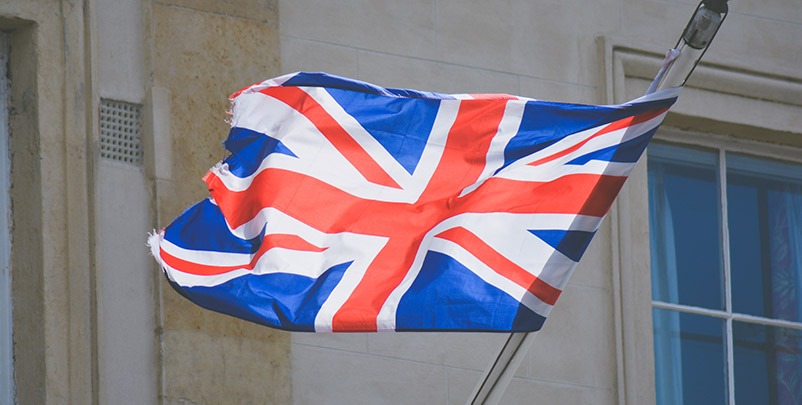LAW SOCIETY EXCELLENCE AWARDS 2019 WINNER!
How to Acquire UK Citizenship

Living in the UK brings a host of opportunities, but for those who travel here from overseas, the prospect of immigration controls can loom large. Luckily, there is a path to British citizenship that lets you live in the UK with the security that you are here to stay.
However, like any area of immigration law, the path to acquiring UK Citizenship is complex and even minor mistakes in the application process can lead to citizenship being rejected.
For this reason, applying for British citizenship should not be attempted without the advice of an experienced solicitor. However, before you start speaking to solicitors, it is important to understand how the process works yourself.
How to Acquire UK Citizenship
The paths to British citizenship are numerous and varied, so which one you take will depend on your own circumstances. While in some cases individuals can apply for British citizenship through ancestry, the vast majority of UK citizenships are awarded following the naturalisation process.
However, the process of naturalisation can vary depending on a number of factors, including age and country of origin. For example, the amount of time you need to have spent living in the UK varies depending on whether you are married to a British citizen.
In this article, we are going to take you through the naturalisation process. Before we do, though, it is important to point out that not all countries allow you to hold two nationalities. Therefore, before you apply for UK citizenship, ensure you understand what impact doing so will have on your current nationality.
Eligibility Criteria for Naturalisation

If you want to become a British citizen via the naturalisation process, you need to ensure you meet the eligibility criteria, which vary depending on whether you are married to a UK citizen and your age.
If You Are Not Married to a UK Citizen
If you are not married to a UK citizen and have travelled here on a visa or are from a European Economic Area (EEA) country, you can make an application for naturalisation as long as you meet the following requirements:
- You are over 18;
- You have held indefinite leave to remain (or permanent residence or settled status for EEA nationals) for the last 12 month;
- You have lived lawfully in the UK for at least five years*;
- You have not been absent from the UK in the five-year qualifying period for more than 450 days;
- You have not been absent from the UK in the last 12 months for more than 90 days;
- You are of good character, meaning you do not have a serious criminal record;
- You have satisfied the English language requirements and passed the “Life in the UK” test;
- You will continue to live in the UK once naturalised;
- You have not broken any immigration laws or conditions;
- You were physically in the UK exactly five years before the date your application reaches the Home Office.
*In reality, the minimum amount of time many people need to have lived in the UK is six years, since you need to live here for five years to obtain indefinite leave to remain. You then need to hold this for 12 months before you can apply for naturalisation.
If You Are Married to a UK Citizen
If you are married to a UK citizen, the eligibility criteria differ in the following ways:
- You must have lived in the UK for at least three years;
- On the date your application is received in the Home Office, you must have acquired indefinite leave to remain, permanent residence or settled status;
- You have not been absent from the UK in the three-year qualifying period for more than 270 days;
- You have not been absent from the UK in the last 12 months for more than 90 days;
Other than this difference in time, the same qualifying criteria apply whether you are married to a UK citizen or not.
If Your Child is Under 18
If you have a child who was born in the UK to parents who are not British citizens and do not have indefinite leave to remain, permanent residence or settled status, the child will not acquire UK citizenship by birth.
However, if one of the parents then obtains indefinite leave to remain, permanent residence or settled status, they can then submit an application.
If one of the parents has indefinite leave to remain, permanent residence or settled status the child will automatically acquire British citizenship by birth.
Common Eligibility Questions

While the eligibility criteria may seem straightforward, there are a number of elements that can potentially trip up your application. Below are some of the common questions we hear.
How Can I Satisfy English Language Requirements?
In order to satisfy the language requirement, you must prove that you can speak and understand English, whether spoken or written. Alternatively, this requirement can be met in Welsh or Scottish Gaelic, if you are applying in Wales or Scotland.
You can meet this requirement in one of the following ways:
- You are a national of a majority English speaking country;
- You have obtained a degree taught in English;
- You have an English qualification at B1, B2, C1 or C2 level.
In some cases, it may not be necessary for an individual to complete the language requirement. This is most commonly the case when someone is:
- Over 65;
- Unable to do so because of a long-term physical or mental condition (for which you need an exemption form from a doctor confirming your physical or mental condition).
What is the “Life in the UK” Test?
The “Life in the UK” test presents applicants with 24 questions about British traditions and customs. The test takes 45 minutes and is mandatory unless one of the following applies:
- The applicant is under 18;
- The applicant is 65 or over;
- The applicant has already passed it;
- The applicant has a long-term physical or mental condition (for which you need an exemption form or letter from a doctor confirming your physical or mental condition).
Applying for Naturalisation
Once you are confident you are eligible, you can complete your application. To do so, you will need to provide two referees, one of which can be a person of any nationality who has a professional setting (such as a civil servant or accountant). The other must normally hold a British passport and be either a professional person or over the age of 25.
When preparing your application there are a number of options, from submitting an individual application to applying through a National Checking Service (NCS). You can also apply through an agent or representative, meaning your solicitor can complete your application on your behalf.
Using a solicitor is almost always the best option for applying for naturalisation. Not only does it take the stress of filling in the paperwork off your shoulders, but by using a solicitor you can also confirm that you are actually eligible. This is important as the criteria for naturalisation can vary depending on where you are from.
Once your application has been submitted, you will need to supply biometric information such as fingerprints and a photo to the Home Office. Your application can then take up to six months to be determined, after which you will be contacted by UK Visas and Immigration with the result.
If your application is successful, you will then be invited to attend a Citizenship Ceremony, where you will take an Oath of Allegiance to the UK and be presented with your Certificate of British Citizenship.


